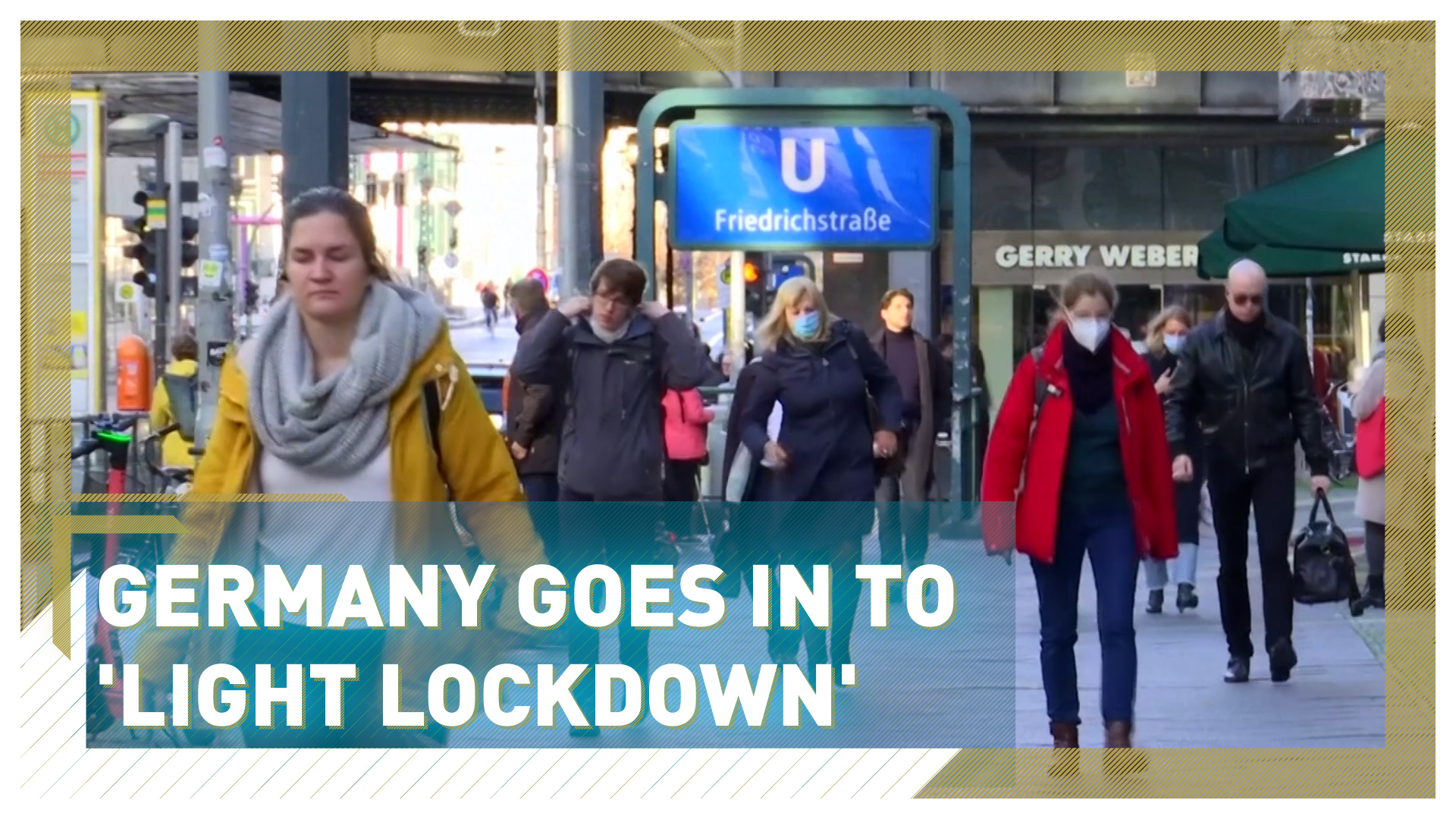There was not a single table free on Saturday morning at the White Rabbit's Room cafe in Munich's trendy Heidhausen neighborhood. This popular breakfast location, as with all the other restaurants, cafes and pubs across the country, will close on Monday for a month in Germany's effort to stop the spread of COVID-19.
Waitress Michaela Mayer understands the need for restrictions on gatherings but does not think it is fair to enforce the same measures on all catering facilities.
"I think that daytime gastronomy operators should still be open because alcohol is rarely served here. We bought these dividing walls especially to keep the distance, so the hygiene concept is actually perfect. We did everything the state told us and still we have to close."
The country has repeatedly reached new records in the number of daily infections, recording more than 19,000 on Saturday, with many of the new infections traced back to weddings, family gatherings and late-night parties.
03:23

The government had implemented a tier system for dealing with the pandemic, through which tougher restrictions would be imposed if infection rates reached certain numbers.
But cases have gone well above those benchmark figures, pushing the federal government and all 16 states to agree on what is being dubbed a "light lockdown" as it will not be as tight as the one in the spring.
While Germany is testing three times the number of people it was earlier in the year, this surge has led to difficulties in contact tracing – a successful tactic that helped the country ride the first wave.
Under the new measures, in addition to limitations on the restaurant industry, gyms and theaters will also be closed.
Masks will remain mandatory in all indoor public spaces and social contact will be limited to a maximum of 10 people from two households.

German Chancellor Angela Merkel has implemented new lockdown measures as she attempts to halt the country's rising number of COVID-19 cases. /AFP
German Chancellor Angela Merkel has implemented new lockdown measures as she attempts to halt the country's rising number of COVID-19 cases. /AFP
However schools, daycare centers and shops will remain open in order to keep people working and the economy going, and this is a welcome relief for many, such as Munich resident Dominik Meyer.
"I have children, so I think it is very important to have schools still open so people can go to work and not stressed like in the spring," he told CGTN.
A complete closure of schools and businesses in the spring forced parents to balance homeschooling with working from home.
Munich resident Ulrike Becker agreed that another lockdown is necessary.
"Yes, it's reasonable," he said. "The number of cases is increasing and the clinics will soon reach their limits. Of course, it will hit certain industries, no question about it, but you have to make cuts somewhere, otherwise, you can't get it under control."
Germany's current infection rates may still be lower than those of other European countries, but Health Minister Jens Spahn, who has tested positive for the virus, has warned that requests for help from other nations on top of Germany's own needs, could stretch the healthcare system too far.
I can't see any sense, because after four weeks it can't be much better and so what's the next step, another lockdown?
- Otto Stepen from Heidhausen will attend an anti-lockdown rally in Munich after becoming disillusioned with the measures
Yet many disagree, arguing these restrictions are unnecessary and will hurt the country's economic growth. Protests against further lockdown measures are planned in major German cities.
Otto Stepen, from Heidhausen, said he was going to attend the one in Munich.
"I am very disappointed in the lockdown," he explained. "I can't see any sense, because after four weeks it can't be much better and so what's the next step, another lockdown until Germany is completely ruined?"
On Sunday, a study released by the German Institute for Economic Research found these new restrictions are likely to cost the German economy around $22.2 billion.
Still, some of the hardest-hit municipalities are choosing to focus on the health numbers and began the lockdown on Friday, while others will also close their schools in an effort to dampen this wave of infections in time to "save the Christmas holidays."